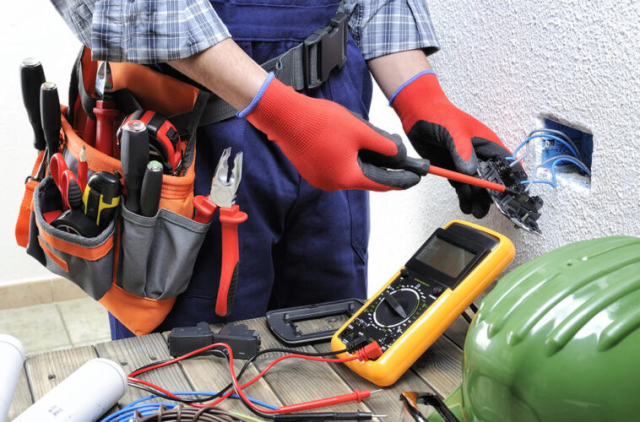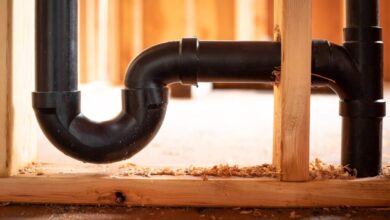
Modern homes rely heavily on their electrical systems for everything from lightbulbs and home automation systems to more intricate services like video streaming. However, when electrical issues occur they can pose significant threats, including fire hazards and equipment damage. Recognising early warning signs is critical in maintaining safety as well as avoiding costly repairs; this guide aims to equip you with all the knowledge required to detect common electrical issues within your own home. For highly recommended electrician services in Cardiff, South Wales; visit The Electrician.
Flickering or Dimming Lights
One of the tell-tale signs of electrical trouble is flickering or dimming lights. While occasional flickers could simply be caused by bulbs reaching their end-of-life cycle, persistent flickering could signal more serious issues like voltage fluctuations or overload. If changing bulbs doesn’t resolve this issue, professional electrician services should be sought immediately.
Frequent Circuit Breaker Trips
Circuit breakers are designed to protect your home by cutting power when one or more circuits become overloaded, and when this occurs frequently enough it could indicate deeper issues – for example faulty devices, circuit overloading, or issues within the circuit breaker itself – all which should be evaluated by a certified electrician in order to reduce any potential safety hazards.
Burning Smell or Unusual Odours
While new appliances may emit a slight odour after being used for the first few times, if you notice persistent burning smells or unusual odours coming from an outlet it should be disconnected immediately as overheating could occur, leading to fire hazards and possibly creating an emergency situation. Seek professional assistance immediately as this could indicate overheating that could result in explosions; until an electrician has assessed its condition do not use or reuse this outlet/appliance until it has been checked by them first.
Buzzing Noises
Electrical systems should operate quietly. Any buzzing from an outlet, switch or fixture indicates an electrical issue such as loose wiring or malfunctioning devices causing buzzing sounds that must be corrected immediately in order to maintain home safety and avoid further damage or fire risks. Locating and correcting its source are of vital importance in order to safeguard home life.
Warm or Sparking Outlets/Switches
Outlets or switches should never feel hot to the touch, and any warmth or sparks when plugging devices in or unplugging devices could indicate dangerous wiring problems such as short circuits or overloaded circuits. Disconnect any appliances or electronics connected to hot outlets before consulting an electrician for advice.
Electrical Shocks
Even mild shocks from appliances, outlets, or switches should be seen as an early indicator of electrical trouble. Shocks may occur when electrical systems are mis-grounded or there is a fault in an appliance; to protect yourself and avoid serious injuries it’s vital that these issues be addressed immediately with professional help.
Sudden Increase in Electric Bills
Unexpected increases in electricity bills can signal hidden electrical problems, such as leaky connections in your electrical system, ineffective appliances or overuse of extension cords. An energy audit performed by an electrician will help pinpoint the root cause and suggest ways to lower consumption.
When Should You Consult Professionals
While minor electrical problems such as tripped breakers or burnt-out lightbulbs may be handled safely by homeowners themselves, for more serious electrical problems they require the expertise of a qualified electrician. Under Part P of the Building Regulations in the UK, all electrical work in homes, gardens and outbuildings must be conducted by an electrician certified to meet safety requirements for compliance purposes.
Conclusion
Consistently monitoring your home for electrical issues is key to maintaining a safe and efficient environment. Being familiar with the common signs of electrical issues and reacting quickly is the best way to prevent minor problems from snowballing into serious hazards. When in doubt, always seek professional advice as this will ensure all work carried out adheres to UK regulations and is conducted safely.





